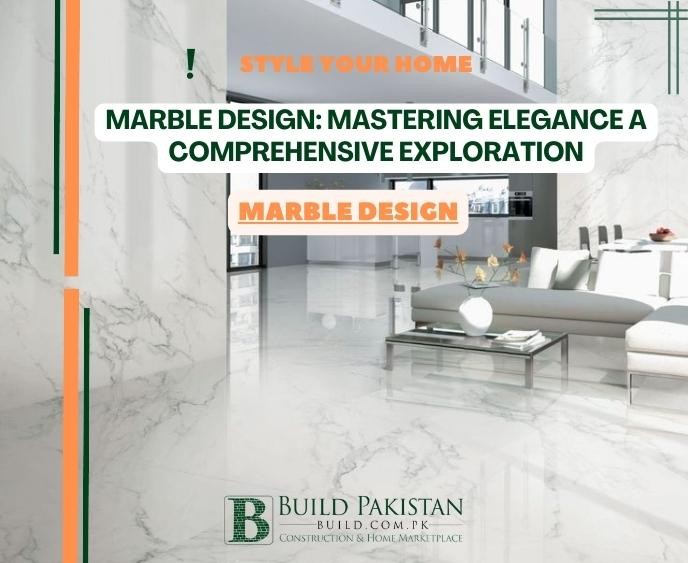Marble Design: Mastering Elegance A Comprehensive Exploration

Introduction:
Marble, with its enduring charm and timeless allure, has
graced the world of design for centuries. Renowned for its sophisticated
aesthetics and distinctive veining, marble transcends eras, seamlessly blending
classical elegance with contemporary design. In this extensive blog, we embark
on a journey through the history, applications, contemporary trends, and
essential considerat ions of marble design, delving deep into the beauty and
versatility of this extraordinary material.

The Timeless Allure of Marble
A Journey Through History:
Marble's rich history traces back to ancient civilizations,
where it adorned the grand structures of the Parthenon in Athens and the
magnificent Taj Mahal in India. Its association with opulence and artistic
expression solidified its status as a symbol of prestige and refinement.
Distinctive Characteristics:
Marble's allure lies in its composition — a metamorphic rock
primarily composed of calcite or dolomite crystals. The intricate veining
patterns, ranging from subtle to dramatic, render each piece of marble unique.
The natural variations contribute to the creation of bespoke works of art in
the form of countertops, flooring, and sculptures.
Applications of Marble Design
Architectural Marvels:
Marble's enduring durability and classic aesthetic make it a
favored choice for architectural elements. Columns, facades, and flooring in
historical landmarks and contemporary structures showcase the material's
ability to stand the test of time.
Interior Elegance:
Within interior design, marble finds its place in a variety
of applications. From sleek flooring to luxurious countertops, accent walls to
fireplace surrounds, its versatility allows it to complement diverse design
styles, from the traditional to the ultra-modern.
Sculptures and Art:
The sculptor's chisel against the canvas of marble continues
to create masterpieces. The malleability of the material allows artists to
carve intricate details, producing sculptures that capture the essence of
beauty and endurance.
Contemporary Trends in Marble Design
Minimalist Elegance:
In contemporary interior design, marble's use is often
characterized by a minimalist approach. Clean lines and a neutral color palette
allow the innate beauty of marble to take center stage, creating an atmosphere
of timeless elegance.
Contrasting Elements:
Designers play with contrasts, marrying marble with materials
such as wood or metal. This juxtaposition adds depth and visual interest,
showcasing the versatility of marble in adapting to various design motifs.
Artistic Patterns:
Cutting-edge cutting and laying techniques enable designers
to fashion intricate patterns with marble tiles. Herringbone, chevron, and
arabesque layouts are popular choices, introducing an artistic dimension to
spaces.
Considerations for Incorporating Marble
Varieties of Marble:
Understanding the varieties of marble is crucial. Carrara,
Calacatta, Emperador — each type presents unique characteristics in terms of
veining, color, and hardness. This knowledge aids in choosing the most suitable
marble for a specific project.
Maintenance and Care:
While durable, marble demands proper maintenance. Sealing
surfaces and employing pH-neutral cleaners are essential steps to preserve the
material's beauty and integrity over time.
Budget Considerations:
The premium nature of marble comes with a corresponding cost.
Con sidering your budget and exploring different varieties will empower you to
make informed choices that align with your financial parameters.
Conclusion:
In conclusion, the allure of marble design is a captivating journey t hrough time and aesthetics. Whether gracing architectural marvels, interior spaces, or artistic creations, marble remains a pinnacle of sophistication — a testament to the enduring fusion of beauty and longevity in the world of design.









